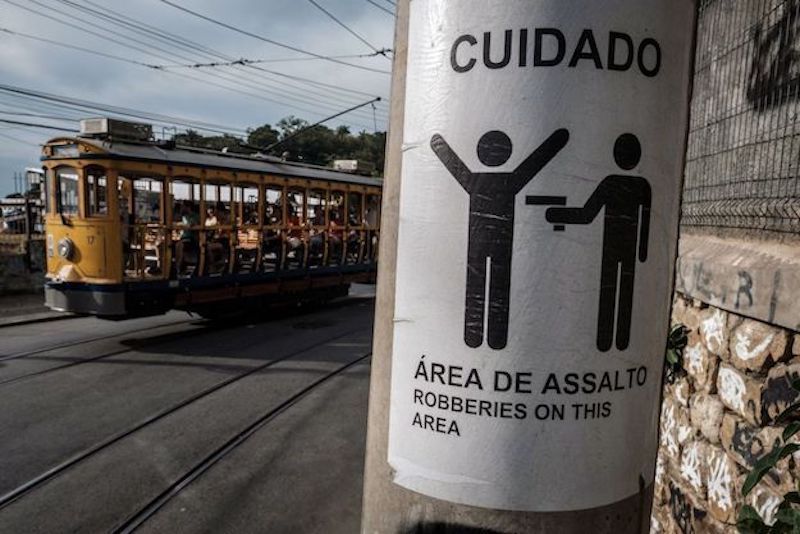Like many other activities and services here in the Netherlands, my Dutch classes have finally started this semester’s module after a few months “standing by,” let us say.
Many of you will think, “Wow, crazy times, huh?!” And with good reason. But the truth is that this scenario is not unfamiliar to me. In 2003, I was accepted to one of the best universities in my region in Brazil, and I was thrilled to start my first year in college. However, I had to wait a bit longer than March (when the school year usually begins in South Brazil) because the professors were on strike.
Unfortunately, strikes in the public education system are common in Brazil. Our professors were claiming better working conditions. Something most education professionals in my dear home country are still doing to this day, and have been doing since before I first recognized myself as a living being.
If I remember correctly, classes started around June, and it took us almost two years to reorganize the calendar. It was weird to have extensive courses during the whole summer, just as it was tiring to have such a short vacation between terms. But since the fight for better public education was not something new, the oddity was assumed as a price to pay, or “normal” – it was what it was.

Fast-forward to 2020 and classes were delayed in the Netherlands, as everyone knows, due to the coronavirus outbreak and the social distancing measures adopted all over the globe. As I got the email explaining how things would work in class, it felt … different. I mean, half of the group in the classroom – wearing masks – and the other half joining us through Skype or any other digital teleconference platform, is not what pops in my mind when I think of a “language course.”
I know there are countless ways to design a lesson, but that would be a first for me – for most of us, I would say. The space they reserved for our group was the same we had been to almost four months ago for the trial class. Then, about 20 people sat next to each other, sharing pens and passing handouts over to their peers. This time, we were only seven, sitting far apart and we barely recognized each other except for the hairstyle, since the mask was mandatory. Our teacher was clearly excited, the environment was nicely set, and we were eager to (re)start developing our Dutch language skills.
A few days later, I was describing the experience to an acquaintance of mine. She asked, “How was it for you?” I replied: “Well, the fact that the teacher didn’t have his face covered made a huge difference. I think it would have been difficult to understand his instructions and to grasp the proper pronunciation under one of those masks. As a student, participating in class was a challenge, since speaking with the mask on is really annoying. Oh, and it hurt my ear a bit. But I’ll get used to it. It is the ‘new normal’ after all.”
Her face turned slightly grave as she said:
I don’t think this is normal at all. Living in fear is not normal. Working, studying, living under uncomfortable circumstances is not normal. Or, at least, it shouldn’t be.
She got me thinking.

I found myself reflecting on the contrast in our perspectives. For a Dutch woman like her, feeling free and safe is probably as natural as breathing. On the other hand, my experience says that Brazilians have a Ph.D. in living under economic instability, unemployment, corruption, neglected health care and education systems (as mentioned above) and severe urban violence.
Nevertheless, Brazilians are incredibly hard-working, kind, and generous people. They study hard, have a fantastic cultural atmosphere and never give up on their dreams.
The thing is: questioning if it is reasonable to be scared of thieves and politics (words that quite often go together there…) all the time has not changed the picture so far. So they just move on and try to live the best way they can.
Brazilians are used to living in fear; the ultimate discomfort. The greatest prison. (And you, reader, cannot begin to imagine how heart-broken I felt typing these words.) So I started wondering if the “skill” I have acquired after so many years living a Brazilian life had anything to do with my willingness to simply accept the trouble of wearing a mask that hurts my ear and prevents me from adequately communicating in class as “normal.” My acquaintance, elegantly, helped me see that “it is uncomfortable, but … whatever. What’s the point in thinking about it?” is not acceptable.
Please, do not read the previous sentences as an incitement to burn all masks and hug everybody you meet at the supermarket. No. It is just an acknowledgment of how important it is to listen to other people, to get our brains to work and to be more self-aware of our own feelings and needs. By talking to her, I got a precious reminder of how okay it is for me to find this whole scenario uncomfortable – because it freaking is! It is a pandemic, for crying out loud! It is not normal!
By no means will I refuse to wear the mask, refuse to sit away from my classmates or refuse to use hand sanitizer regularly. But finding it uncomfortable is legitimate, although it is necessary at this point, as many other troubles in life are.

About the author:
Letícia Batista was born in Porto Alegre, south Brazil. She is a content creator with a Master’s Degree in Literary Studies. Her thesis was on avant-garde movements and Brazilian music, which she is most passionate about.
She has the best memories from Israel, where she lived from 2012 to 2014. Currently living in The Netherlands, more precisely in Eindhoven, she is once again enjoying the ease of traveling around, always accompanied by “the most beautiful and peaceful pair of green eyes I have ever,” as she describes her husband.
A curly fanatic, enthusiastic dancer and devoted home baker, Leticia’s motto is “everyone’s life is material for an incredible movie or a great book.” She loves to tell a story and, therefore, writes whenever she can.














